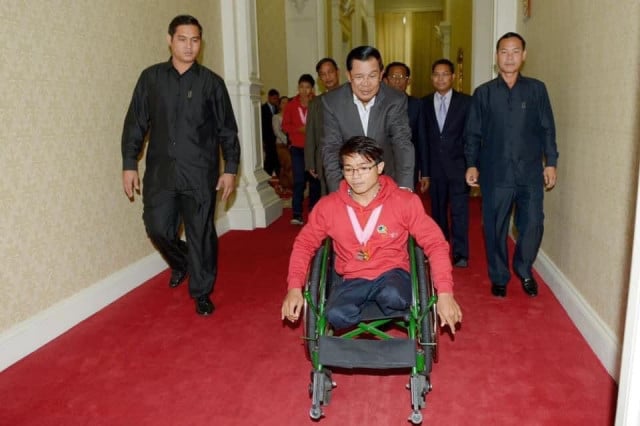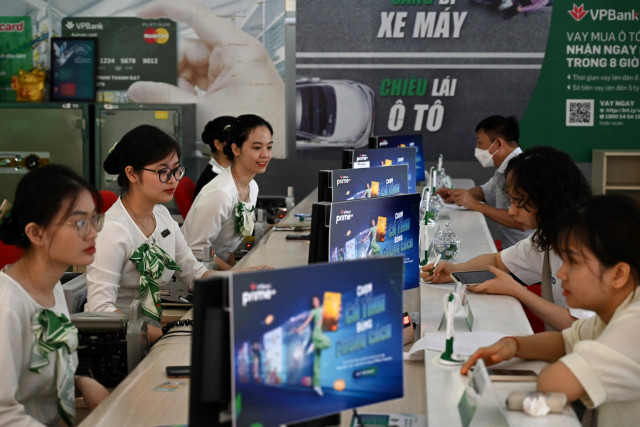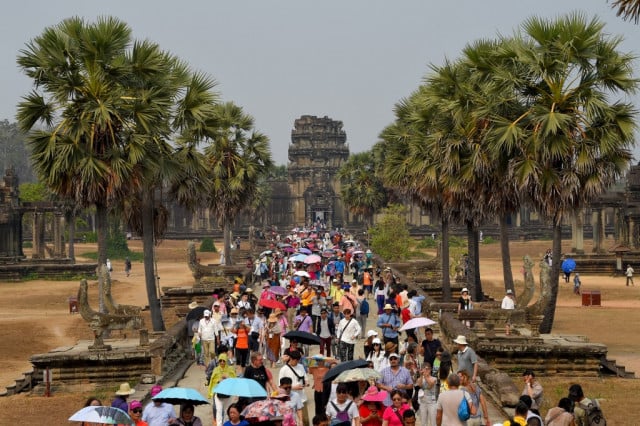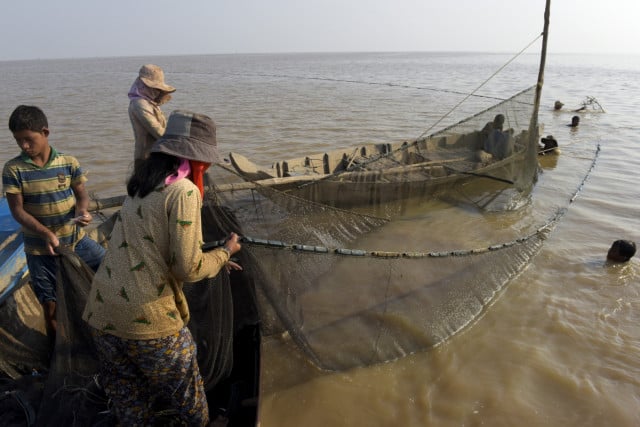Hun Sen Calls on the Public and Private Sectors to Hire People with Disabilities

- Phoung Vantha
- December 3, 2020 12:07 PM
Buildings should also be equipped to accommodate them, he said
PHNOM PENH--Prime Minister Hun Sen has called on all ministries and state institutions as well as the private sector to hire people with disabilities.
In a message posted on his Facebook page on Dec. 3 to mark the 22nd Cambodian Day of Persons with Disabilities and the United Nations 38th International Day of Persons with Disabilities, he said that, along with state institutions, the private and non-government sectors including NGOs, factories, private enterprises and institutions should provide employment for people with disabilities as they do for people without disabilities, and respect them as they respect people without disabilities.
Hun Sen called on all parties to make their buildings accessible to people with disabilities, setting up features such as designated parking areas, slopes and ramps for wheelchairs, appropriate door handles, bathrooms and other facilities for people with disabilities.
The prime minister also ordered the Cambodian authorities to strengthen coordination mechanisms to prevent discrimination and disrespect of people with disabilities, and to study what would be appropriate jobs and businesses for them so they could meet market needs, and also encouraging them to start their own businesses.
In 2019, the Cambodian government launched its the National Disability Strategic Plan 2019-2023. In his message, Hun Sen said that in 2019, a total of 2,860 people with disabilities were hired in the public sector and 3,792 in the private sector.
However, according to a report of the United Nations Development Programme (UNDP) on Cambodia, there are roughly 1.6 million people with disabilities in the country.
The lack of accessible transportation is a major barrier to their inclusion in social and economic life, the UNDP said, adding that, even under normal circumstances, persons with disabilities are less likely to get access to healthcare, education, employment and to participate in the life of the community.
This has led the Agile Development Group to work with the Phnom Penh Center for Independent Living (PPcil) and, with the support of UNDP, to design, build and test the Abili-Tuk. This vehicle now enables eight female drivers and one male driver with lower body impairments to drive without difficulty, the UNDP said on its Twitter account.
"Promoting inclusion of persons with disabilities means first of all recognizing and protecting their rights,” UN Secretary General António Guterres said to mark the International Day of Persons with Disabilities. “These rights touch on every aspect of life: the right to go to school, to live in one’s community, to access health care, to start a family, to engage in political participation, to be able to play sport, or to travel, and to have decent work."















